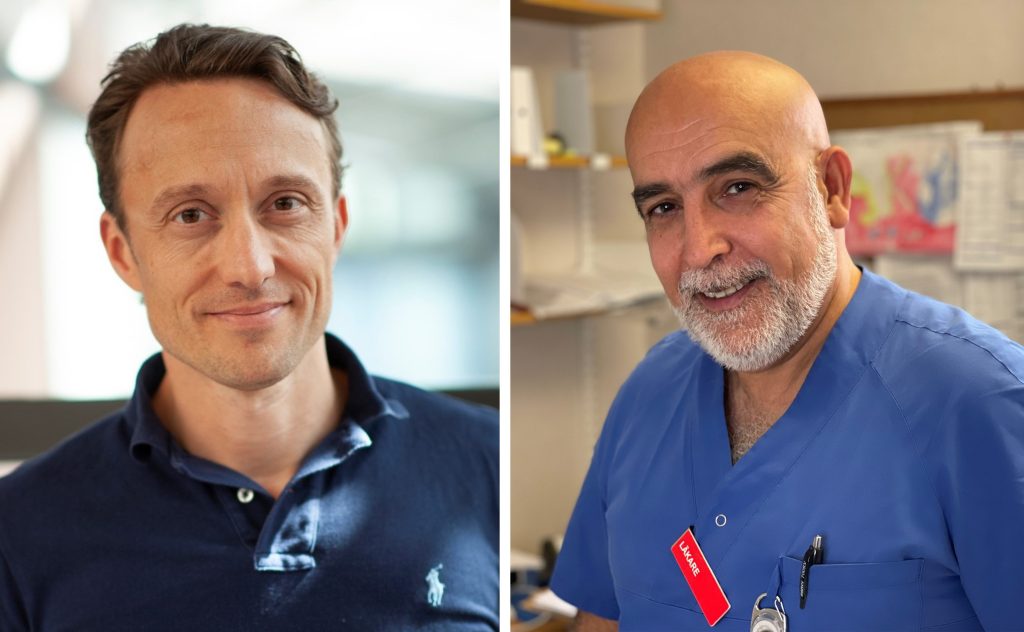Through speech recognition that translates speech into text, the information is transmitted directly to the patient’s medical record. Per Hedenström, MD, Department Director at Gastrosektionen and Ali Khatami, MD, Department Head of Urology, are testing speech recognition in their operations.
During 2023, some operations at Sahlgrenska University Hospital started using speech recognition in their work. Specialty Medicine’s gastric surgery and urology practice are two practices that raised their hands early and wanted to test the tool.
Per Hedenström, a physician and department director at Gastrosektionen, heard about speech-to-text more than twenty years ago, during his first temporary position as a physician in Stockholm. But then it was quiet, until about a year ago when he heard about the project through a colleague and then registered an interest in getting involved with Gastrosektionen as a pilot activity.
Entering speech into text comes at a time when we are stressed about the secretarial side with the heavy workload and sometimes long waiting periods to print the dictation. The need for immediate access to medical records is urgent first and foremost because it reduces information delays in the care chain. This in turn increases patient safety, says Per Hedenström.
In the patient’s medical record
Through speech recognition that translates speech into text, the information is transmitted directly to the patient’s medical record. The information then becomes available to everyone who needs it, including the patient himself.
– Text-to-text conversion is incredibly valuable when notes need to be readable within a short period of time. This could be, for example, a change in medication for the patient or in response to an important examination.
The availability of information can also reduce the risk of unnecessary investigations regarding the patient, since all concerned have access to the same information.
Ali Khatami is a physician and director of urology, and in the video below he shares his experience with speech recognition and emphasizes the importance of taking care of the entire continuum when digitizing.
Our goal is to free up licensed staff, regardless of who they are, to spend more time with the patient. That is, try to stay away from tasks that can be done by someone else and I think speech recognition can work well for that, if used correctly.
The gains are more noticeable when you look up
Speech recognition gains, of course, depend on the perspective one has. According to Per Hedenström, they become more noticeable when you look up a little.
– So far, we may not have seen any significant gains overall for doctors using speech recognition technology. But there is time to save one’s time in the notes that doctors today write themselves, for example diary notes and sick certificates, says Per Hedenström and continues.
– However, it is important that colleagues, doctors and nurses, on the other end and as recipients of information save time and can help the patient in the best way and most quickly. Without speech recognition, it may take a long time before you receive information about, for example, the result of gastroscopy. In the worst case, the colleague has to listen to the dictation afterwards to get the information, and usually no one is particularly happy about that. Finally, speech-to-text reduces the burden on medical secretaries, who can then use their skills and get on with other important tasks.
So care as a whole benefits from speech recognition, believes Per Hedenström.
– In the best case scenario, it may also be possible to reduce care times at a time when care spaces are in short supply, he says.

“Extreme tv maven. Beer fanatic. Friendly bacon fan. Communicator. Wannabe travel expert.”









More Stories
Why Rare Earth Metals for Electric Cars Are Crucial for Modern Mobility
“We want to promote critical rules approach”
“A lot happened during the trip,” Jönköping County Council